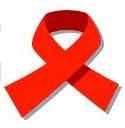JAKARTA, Indonesia Thousands of mourners thronged roads Thursday in Indonesia to say farewell to late President Abdurrahman Wahid, a beloved, one-eyed cleric who reached out to religious minorities in the world’s most populous Muslim-majority nation.Wahid, who ruled for nearly two years of tumult as Indonesia embarked on a path to democracy in 1999 after three decades of dictatorship, died in a hospital Wednesday. He was 69.A memorial service was led by President Susilo Bambang Yudhoyono before the burial in Wahid’s East Java hometown of Jombang, where about 10,000 supporters prayed over his remains, which were wrapped in white sheets.The televised service began a week of national mourning during which flags will be flown at half-staff. Some official New Year’s Eve celebrations were canceled.There was a massive outpouring of sentiment for a man whose open style, impromptu joke telling and naps during his own speeches endeared him to the masses. Weeping admirers lit candles and incense and said prayers at vigils held at mosques, churches, temples, schools and landmarks.Wahid, known fondly by his nickname Gus Dur, was a democratic reformer and proponent of moderate Islam who ultimately was unable to implement his ambitious ideas amid the financial and political chaos that dominated the vast island state of 235 million people during his presidency.
A White House statement said Wahid was “a pivotal figure” in Indonesia’s transition to free government who “will be remembered for his commitment to democratic principles, inclusive politics, and religious tolerance.”During his short term, from October 1999 to July 2001, Wahid led a broad coalition of unity but was eventually impeached after firing Yudhoyono, then a Cabinet minister, for refusing to declare a state of emergency when the army positioned tanks facing the Presidential Palace.
Wahid had been in the intensive care unit of Ciptomangunkusumo Hospital in Jakarta for the past week.The former president died during surgery to remove a blood clot in his heart, said professor Yusuf Misbach, head of his medical team. Wahid’s condition had deteriorated because of complications with diabetes and kidney failure, he said.
Wahid had struggled with illness for years and was confined to a wheelchair. Nearly blind, he also suffered serious kidney problems and diabetes.Presidential spokesman Julian Pasha noted Wahid’s widespread popularity, saying “we lost one of our greatest figures, who was very much loved by people from all walks of life.”
Abdurrahman Wahid, a long-serving head of the Nahdlatul Ulama, Indonesia’s largest Islamic group, pushed for interfaith dialogue and accepted an invitation to visit Israel in October 1994.In 1997, he traveled to Tel Aviv where he jointly signed a peace charter promoted by the Simon Perez Institute, a courageous effort at diplomacy in a country that still has no formal diplomatic ties with the Jewish state.
“We have lost a true friend and a warrior for peace and mutual respect,” said Rabbi Abraham Cooper, associate dean of the Simon Wiesenthal Center. “As a devout Muslim with a following of tens of millions, Mr. Wahid was unafraid to condemn unambiguously terrorism in all its forms.””He was a very open person. … All minorities, underdogs or those suffering always felt secure with him. That was very extraordinary,” said Franz Magnis-Suseno, a Catholic priest. “He was a humanist. … For people like me, he emitted a friendly Islam that made us feel safe.”
Wahid was an opponent of Suharto in the dictator’s final years in power. Wahid attempted to establish a truth and reconciliation commission to investigate political killings, disappearances and massacres during Suharto’s 32-year rule, but political opposition was too great.Wahid was elected Indonesia’s third president on Oct. 20, 1999. While in office, he worked for peaceful solutions to secessionist movements in restive provinces such as Aceh and Papua.He visited East Timor after it became a new nation and apologized for human rights abuses committed by Indonesian forces during its brutal 24-year occupation.(AP)



